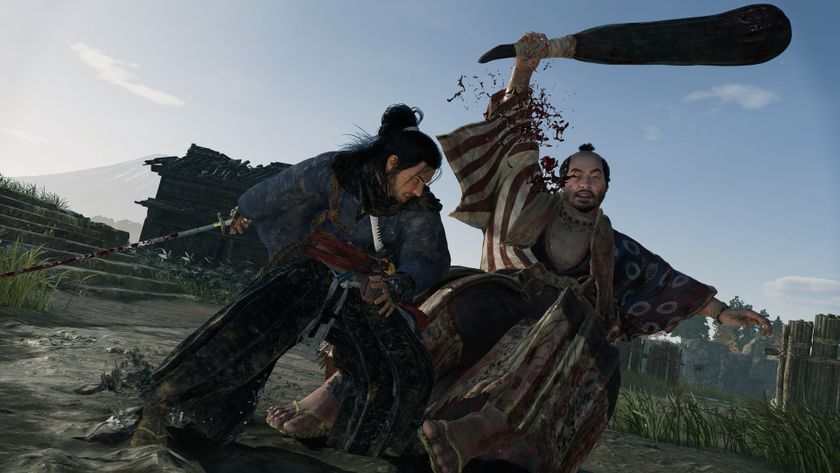DnD Rogue class guide - how to play these artful tricksters
Strike hard and fast from the cover of darkness
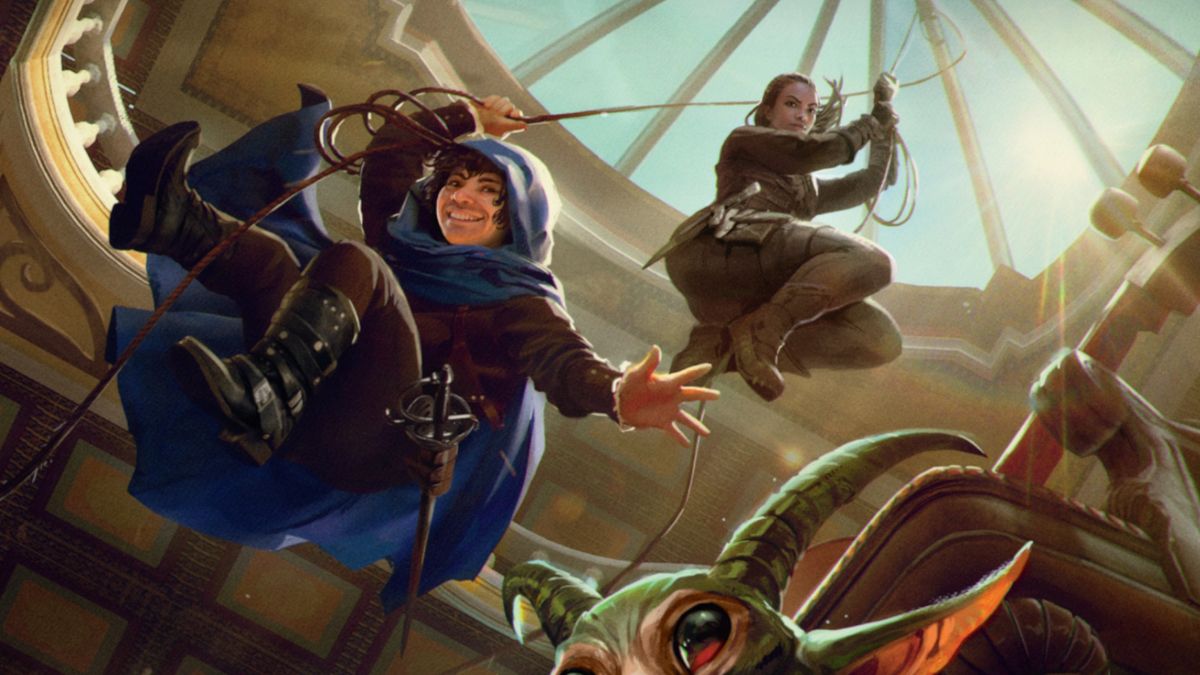
If your favorite characters have a penchant for bows, daggers, skullduggery, and hooded cloaks that are perfect for brooding in, the DnD Rogue class will suit you. These ne'er do-wells are an essential member of every party, and thanks to their fondness for not fighting fair, they can clean up in battle when used correctly. Think of them as a scalpel to the Barbarian's sledgehammer.
To help you get the most out of these thieves and assassins, we've pulled together some advice on how to use them. This DnD Rogue rundown will take you through everything you need to know about the class, including builds and tactics that suit it best.
Not feeling this one? Not to worry. For advice on the kind of hero from Dungeons and Dragons books that'll suit you, be sure to check out our advice on the best DnD class for beginners.
DnD Rogue - essential info
| Type | Damage dealer / Face / Support |
| Complexity | Moderate |
| Available in | Basic rules, Player's Handbook |
| Play if you like | Vax from Critical Role, Assassin's Creed, The Elder Scrolls' Thieves Guild / Dark Brotherhood |
The DnD Rogue is one who walks in shadow. Light footed and formidable, they can be devious sleuths, scoundrels, gamblers, and are often purveyors of ill-gotten goods. With dexterity as their most favored stat, Rogues are swift and agile, and a dab-hand at disarming traps and picking locks. They may spend their waking hours keeping out of sight, but they'll not shy away from a challenge to reach a spot deemed too treacherous, or otherwise off-limits.
The goal of a DnD Rogue is to take as many lives with as little effort – and as much style – as possible, without drawing any attention. Their skillset is invaluable to any campaign, but their fragility means they rely on getting in and out before their opponent ever lands a hit. They're damage dealers, dual wielders, and will balance the party with edgy, nihilistic commentary to dispel even the most devout Cleric's beacon of hope.
Should you play as a DnD Rogue?
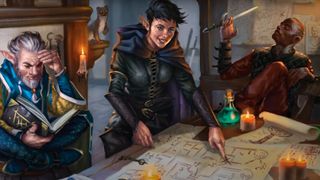
The Rogue is best for players with an affinity for espionage and trickery, though they also make incredible magic wielders. As scouts, they're often the first to roll initiative, and will need to make snap decisions without the party's input. A particularly perceptive monster will single out a lone rogue, and they'll need to have the gall to ride solo until the rest of the crew catches up.
I use ride non-metaphorically, too, as this class lends itself almost game-breakingly to playing a mounted character. We'll get to that later. For now, know that Rogues, while slippery, are especially susceptible to damage when cornered, so you'll want to stay in the party healer's good books.
Sign up to the 12DOVE Newsletter
Weekly digests, tales from the communities you love, and more
Choose this class if...
✅ You enjoy playing stealthy characters
The skill-set of the DnD Rogue will allow you to go unseen and commit heinous acts without an iota of suspicion being aroused. Those who prefer the element of surprise, with an affinity for shiny objects and general chicanery, will enjoy this class.
✅ You're looking to schmooze
Rogues make a great Face for the party, with a tongue as sharp as any blade in their arsenal. They'll crash the soiree undetected, disguise themselves as part of the landed gentry, and worm their way into the Lord's good books, while pocketing the key to his treasury.
Don't choose this class if...
❌ You prefer tanky characters
While there's a lot of potential for Rogues to deal exceptional damage numbers, they're not made for talking hits or grappling other players. Their skills center around keeping out of harm's way.
❌ You're opting for a lawful good alignment
DnD Rogues are rarely on the right side of the law, and they'll likely have to do some morally questionable things to achieve their goals. You'll have to be comfortable being a little nefarious… unless you're playing an Inquisitive, that is.
DnD Rogue - best stats
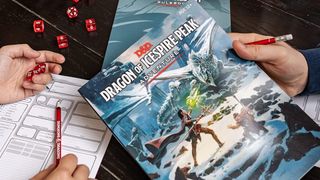
What are the best stats for a DnD Rogue?
As with all the best tabletop RPGs, attributes play a huge role in this game - they'll dictate your character's strengths and weaknesses. It's important to consider your subclass before distributing skillpoints as a result, since some specialisms will rely heavily on certain ability scores.
Generally, an array like this should work well for most DnD Rogues, from highest to lowest:
1. Dexterity
2. Constitution
3. Charisma
4. Intelligence
5. Wisdom
6. Strength
As a rule, Dexterity should always take precedence for a Rogue, since it determines their effectiveness with ranged and light melee weapons, feeds their Armor Class score, and will benefit all the generically Roguish moves.
Constitution can be a lifesaver for melee Rogues planning to get into close-quarters combat, and Charisma will give you the upper hand when talking your way out of (and into) sticky situations. Those planning to play the party's Face will want to spec into charisma to generate some of that sweet main character energy.
Strength is your dump stat here
However, if you're planning on subclassing as an Arcane Trickster, you'll want to prioritize Intelligence over Charisma, since it determines the power of your spells. Wisdom doesn't add much except to bolster Perception and Insight, though Inquisitives will need more to power Unerring Eye at 13th level, which makes you inconceivably shrewd.
Strength is the dump stat here, since Rogues aren't well versed when it comes to playing the muscle.
DnD Rogue - best races
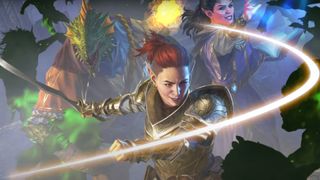
Which race is best for a DnD Rogue?
Any race with a dexterity bonus will lend itself to the DnD Rogue class, but small and nimble species work particularly well. There are also some races whose innate abilities will complement the Roguish lifestyle, such as Wood Elves and Tieflings. Here are some of the best races for playing a Rogue.
1. Elf (Player's Handbook)
2. Tabaxi (Monsters of the Multiverse)
3. Lightfoot Halfling (Player's Handbook)
4. Elf (Player's Handbook)
5. Forest gnome (Player's Handbook)
6. Tiefling (Player's Handbook)
7. Kenku (Monsters of the Multiverse)
Elves make fantastic rogues with their innate Dexterity bonus. High Elves are great melee combatants, and their Perception proficiency will let them see danger before it sees them. At the other end of the scale, a Wood Elf can make the most of the Mask of the Wild to improve your chances of blending in with the great outdoors. If opting to be the party's Face, though, a Half-Elf will grant a Charisma bonus and Elven Accuracy for an extra roll with your finesse.
Lightfoot Halflings are not only dextrous, they're Naturally Stealthy so they can hide behind larger creatures to sneak into places.
Elves make fantastic rogues with their innate Dexterity bonus
Tabaxi and Tieflings make great DnD Rogues, with Darkvision lending itself to a life in the shadows. Tabaxi also offer good climbing ability and Feline Agility to double your speed in combat. A Tiefling's Thaumaturgy can help you create interesting distractions. Kenku, too, come with a Dexterity bonus and their inherent Wisdom makes for a great Inquisitive. Kenku training also means you can take two generally Rogue-appropriate proficiencies.
For Arcane Trickster Rogues, Forest Gnomes make a great choice thanks to their Dexterity and Natural Illusionist feat, which can help in a pinch.
DnD Rogue - best proficiencies
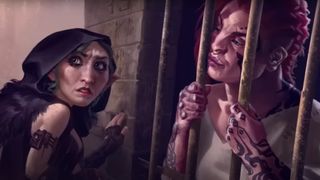
What are the best proficiencies for a DnD Rogue?
Level one Rogues get to choose four skill proficiencies. That's as well as two proficiency upgrades (expertise), or one upgrade and the Thieves Tools proficiency. We recommend going for the latter if you're planning to do any amount of lockpicking or disarming traps—as long as you're not opting for a background that already covers it.
With that in mind, you'll want to cross-reference proficiencies with your intended background, as each one adds its own proficiencies. Letting your proficiencies be guided by your background will make sense, and will give you a chance to spend your base ones on other things.
Here are some of the best proficiencies for a DnD Rogue.
1. Stealth
2. Perception
3. Persuasion
4. Deception
5. Investigation
6. Intimidation
7. Sleight of hand
A Rogue with no stealth is no kind of Rogue at all. If you're not planning to strike from the shadows, what are you even doing here? Perception is another important one, so you'll always know when the party is about to walk into a trap. These are the two most important for a basic Rogue act; the rest will depend on the kind of playstyle you're going for.
A Rogue with no stealth is no kind of Rogue at all
Charismatic players acting as the party's Face should make the most of Persuasion, though whether you choose Insight, Intimidation/Deception, or Investigation will depend on whether you've specced into Wisdom, Charisma, or Intelligence, respectively. Sleight of hand can come in handy for those with a bit of kleptomania, but it's not usually as important for advancing the plot.
DnD Rogue - best background
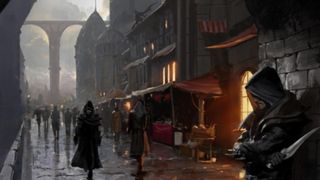
What's the best background for a DnD Rogue?
Providing your Rogue with a basis for their worldview, and adding a bunch of different skills, tools and abilities, backgrounds are a great way to flesh out a character and get some benefits in the process. Here are some of the best backgrounds for your DnD Rogue.
1. Urchin (Player's Handbook)
2. Criminal (Player's Handbook)
3. Charlatan (Player's Handbook)
4. Guild Artisan (Player's Handbook)
5. Noble (Player's Handbook)
6. Urban Bounty Hunter (Sword Coast Adventurer’s Guide)
7. Faction Agent (Sword Coast Adventurer’s Guide)
8. Mercenary Veteran (Sword Coast Adventurer’s Guide)
9. Courtier (Sword Coast Adventurer’s Guide)
10. Cloistered Scholar (Sword Coast Adventurer’s Guide)
The Urchin's downtrodden background would explain a lot when it comes to the Rogue's lifestyle. Their proficiencies stand out as particularly useful, and they can even spot secret passages so the party can shift around twice as fast.
Going for Criminal also offers practical Roguish proficiencies, such as being good with a game set. You even start off with a crowbar and a bunch of seedy contacts.
Remember that the main point of a backstory is to add flavour to your character, and give the GM something to hang plot hooks off
The Charlatan, similarly, is a bit of a sneaky one. Their skills lie in deception and their inventory is lined with tools to con the unwary patron. Their False Identity sees them living a second life, which they can switch between at a moment's notice, and with a forgery kit proficiency, the whole party can have patents of nobility written up in no time.
Whichever you choose, remember that the main point of a backstory is to add flavour to your character, and give the GM something to hang plot hooks off when your character arc rolls around.
DnD Rogue - best Feats
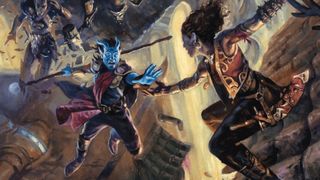
What are the best feats and features for a DnD Rogue?
Feats are talents or areas of expertise that make your DnD character truly unique. They’re worth looking into for some incredible combos that'll tap into the Rogue's massive potential to deal critical damage.
1. Ritual Caster (Player's Handbook)
2. Steady Aim (optional - Tasha's Cauldron of Everything)
3. Inspiring Leader (Player's Handbook)
4. Fey Touched (Tasha's Cauldron of Everything)
5. Crossbow Expert (Player's Handbook)
6. Sharpshooter (Player's Handbook)
Arcane Tricksters and ranged Rogues will do well to adopt the Ritual Caster feat. Offering a range of utility spells, you can also combine it with the Steady Aim optional class feature for an exciting advantage. Usually the Steady Aim skill leaves players unable to move, but for a mounted Rogue, that becomes a non-issue as their mount can do the moving for them. That makes the Ritual Caster's Phantom Steed one of the most overpowered abilities in the game, especially for a ranged Rogue.
Rogues can build a truly relentless ranged character if they Combine Crossbow Expert's disregard for close range disadvantage
If you're speccing into Charisma, the Inspiring Leader feat will give you and your party some padding with temporary hit points equivalent to your level, plus your charisma modifier—not a bad little buff. And mistwalking Fey Touched will find themselves with plenty of roguishly practical uses for the once-a-long-rest Misty Step ability, along with a Divination or Enchantment spell of their choice to round out their arsenal.
Rogues can build a truly relentless ranged character if they Combine Crossbow Expert's disregard for close range disadvantage (which prevents Sneak Attack) with the Sharpshooter's high-risk-high-damage feat.
DnD Rogue - best subclasses
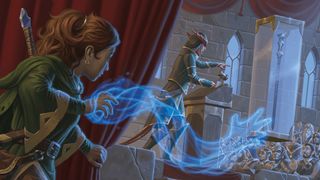
What are the best subclasses for a DnD Rogue?
One of the great things about being a Rogue is their ability to specialise with a Rogue subclass. Each subclass offers an exciting skillset for certain play styles, provided they're backed with complementary ability scores. Here are some of the best subclasses for a DnD Rogue.
1. Soulknife (Tasha's Cauldron of Everything)
2. Arcane trickster (Player's Handbook)
3. Thief (Player's Handbook)
4. Scout (Xanathar's Guide to Everything)
5. Swashbuckler (Xanathar's Guide to Everything)
6. Inquisitive (Xanathar's Guide to Everything)
For the intelligent DnD Rogue, magic-wielding subclasses offer some of the most versatile skill sets around. The Soulknife, for example, gains psionic powers that allow them to conjure weapons to support them in battle, Psionic Dice to improve ability and attack rolls, and a boatload of useful Rogue-relevant skills. The Arcane Trickster is another impressive magical subclass with a wealth of Wizard spells at their fingertips. They're formidable both in and outside of combat, and their ability to steal extends to spells, making them difficult to one-up with magic.
On the subject of stealing, Dexterity-focused characters make great Thieves. They can not only use objects, pick locks, and make sleight of hand checks as a bonus action in combat… at high levels, they can utilise any class' magical items and even take an extra turn when first they dive into battle.
Charismatic Rogues make fantastic Swashbucklers
The Scout subclass works well for those wanting to play a more Ranger-like Rogue. Survival and Nature proficient, Scouts are also speedy skirmishers who – once they hit level 17 – get an extra attack and bonus action.
Charismatic Rogues make fantastic Swashbucklers with their non-magical charm abilities. Their legendary footwork allows them to avoid attacks of opportunity, and they make smashing duelists for one-on-one combat. Alternatively, those looking to play into their detective alter ego will make great Inquisitives. While their skills aren't as useful in combat, they can squeeze information from a stone. Players could even play into the rare potential for their Rogue to be on the side of the law.
And there we go - you should be all set to make your DnD Rogue. If you'll be taking them digital, be sure to check out our guide on how to play DnD online.

Katie is a freelance writer with almost 5 years experience in covering everything from tabletop RPGs, to video games and tech. Besides earning a Game Art and Design degree up to Masters level, she is a designer of board games, board game workshop facilitator, and an avid TTRPG Games Master - not to mention a former Hardware Writer over at PC Gamer.
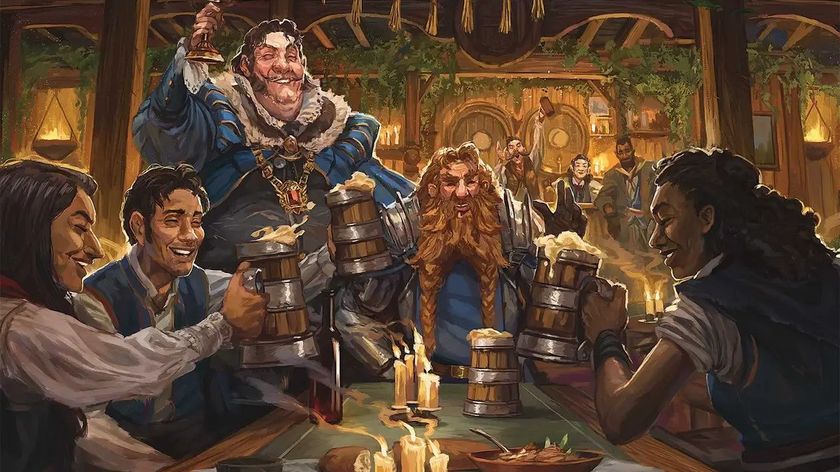
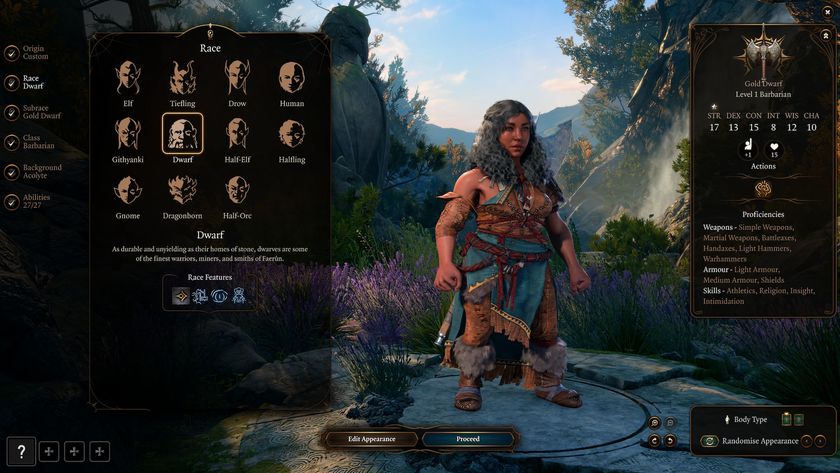
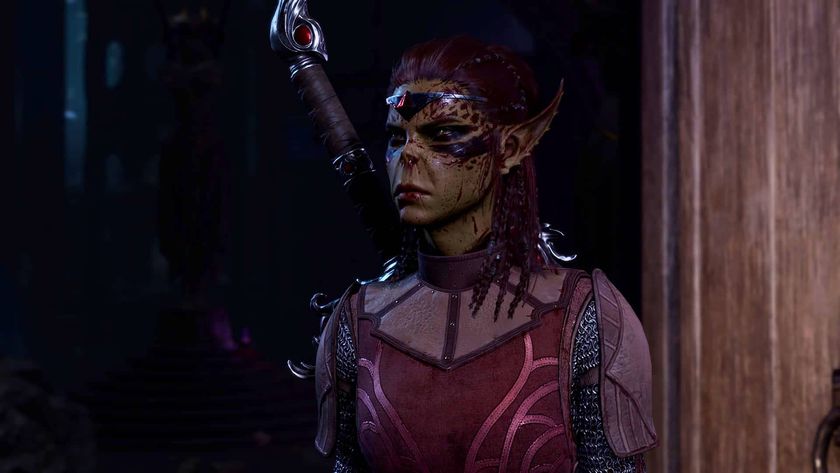

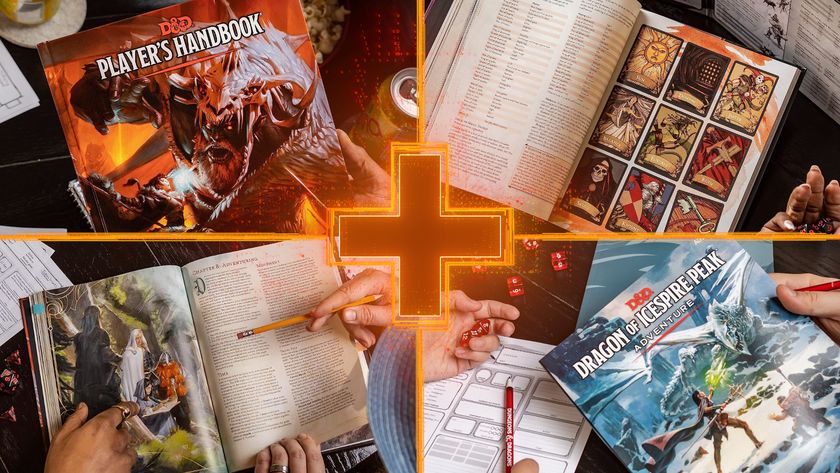
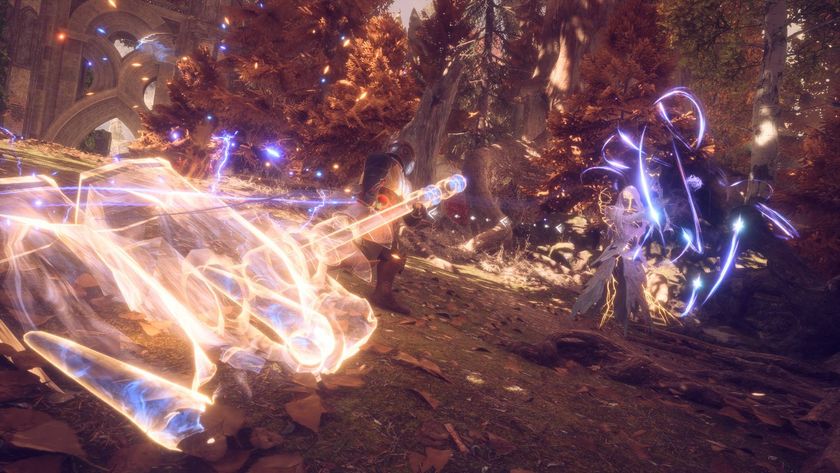



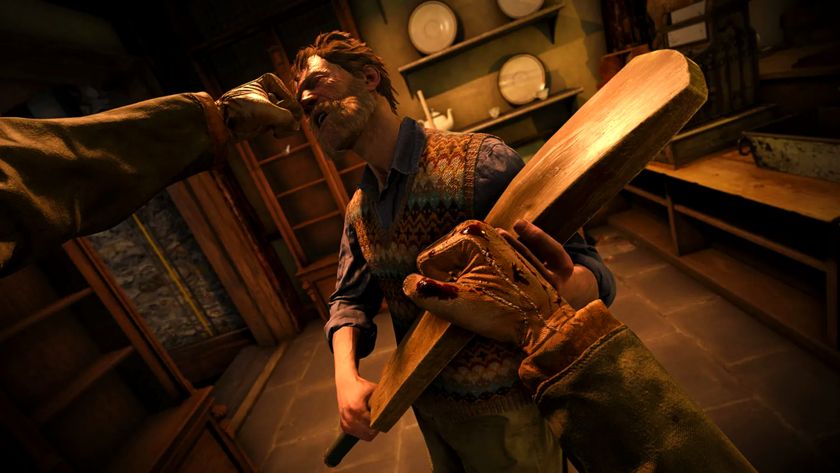
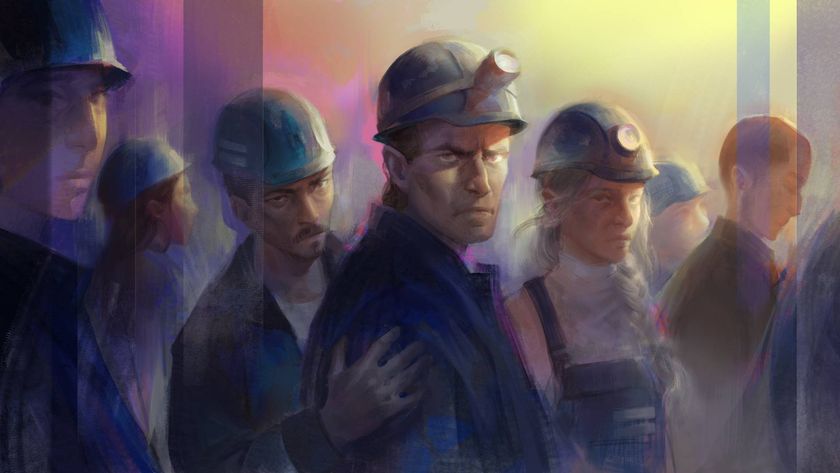








Veteran Dragon Age dev says one big delay is better than several small ones: "You are laying band-aid on top of band-aid on top of band-aid"

Baldur's Gate 3 Astarion actor comes face to face with what might just be the best merch to come of the RPG yet – a 5-foot Funko Pop figure of his character
